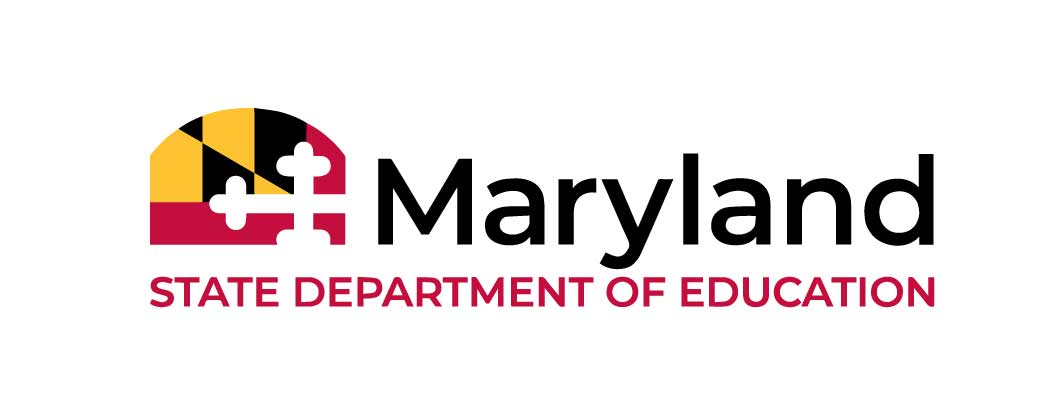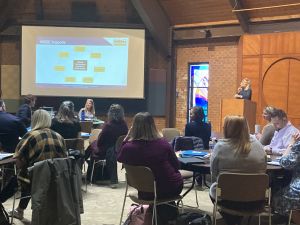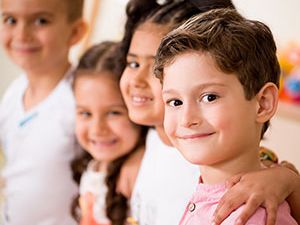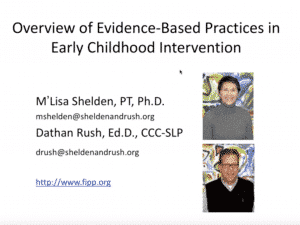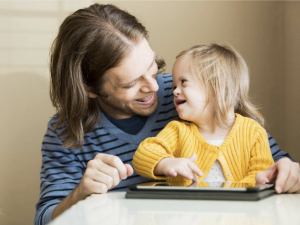Maryland Social Emotional Foundations for Early Learning (SEFEL)

Maryland has a strong history of excellence in early childhood education and a commitment to infant/early childhood mental health. Through the work of a state partnership called the Early Childhood Mental Health Steering Committee (ECMHSC) that includes families, state and local child serving agencies, and early childhood providers and advocates, Maryland was initially one of three states to receive a grant from the Center for Social Emotional Foundations for Early Learning (CSEFEL).
SEFEL is a framework for teaching social and emotional skills to children. It works in many different settings. In Maryland, SEFEL has been implemented in a variety of different child care settings to great success and is currently being adapted for preschool and elementary school settings. In addition, experts in Maryland are currently training parents, home visitors, child welfare workers and first responders in the SEFEL model.
A new Maryland Social Emotional Foundations for Early Learning (SEFEL) website has been launched in collaboration with the University of Maryland/School of Social Work/The Institute for Innovation and Implementation. This website includes engaging, interactive modules for early care and education providers to use online, along with resources for families, teachers and caregivers, and trainers and coaches. Click here to access the Maryland SEFEL website.
Additional SEFEL Links and Resources
Understanding Temperament in Infants and Toddlers explains why temperament is important, provides some clarifications about temperament, and explains how to use what you know about temperament to promote positive social-emotional development and behavior. Look for the handout called the Temperament Continuum to help you analyze where your temperament is similar and different to the children you care for.
The Cultural and Linguistic Competence Family Organization Assessment Instrument
The National Center for Cultural Competence at Georgetown University’s Center for Child and Human Development has developed a new tool for assessing organizational cultural and linguistic competence, designed specifically for family organizations concerned with children with behavioral-emotional disorders, special health care needs, and disabilities.
IMPACT Feature Issue: Supporting the Social Well-Being of Children and Youth with Disabilities
IMPACT is a print and online publication by the Institute on Community Integration, a University Center for Excellence in Developmental Disabilities at the University of Minnesota. The publication is a compilation of articles bringing together practical, insightful, and stories focusing on what adults can do to create and sustain environments that contribute to social well-being for young people with disabilities and their peers.
Infant Toddler Temperament Tool (IT3)
Developed by the Center for Early Childhood Mental Health Consultation the IT3 tool helps parents and caregivers to explore their own temperament traits, as well as those of a child for whom they provide care. Results from using the Infant Toddler Temperament Tool support parents and caregivers in understanding how adult and child similarities and differences in temperament traits may affect “goodness of fit” and provide tips to foster the unique temperament of each child within their care.
Observation Toolkit for Mental Health Consultants
Organized around the Teaching Pyramid, a series of evidence-based strategies for promoting social emotional development in children from infancy through age five, the Toolkit includes resources and strategies to support observations and improve the social emotional climate in early childhood classrooms.
Teaching Your Child to Become Independent with Daily Routines*
The Center on the Social and Emotional Foundations for Early Learning (CSEFEL) has published a new Family Tool to help parents and caregivers understand what self-help skills can be expected from young children and to provide tips for helping children learn how to become more independent with daily routines.
Recognizing and Supporting the Social and Emotional Health of Young Children Birth to Age 5 Tutorial
This tutorial is part of a series developed by the Center for Early Childhood Mental Health Consultation, The tutorial provides users with a detailed understanding of the behaviors related to social and emotional health in infants and young children. It also includes strategies that adults can use to support these behaviors within every day routines and settings. For other tutorials in the series see http://www.ecmhc.org/tutorials/index.html.
Resources for Trainers and Coaches offers decision making guidelines, training tutorials, chat sessions, information for pre-service faculty.
* This pdf is not 100% accessible and is not a required resource.
